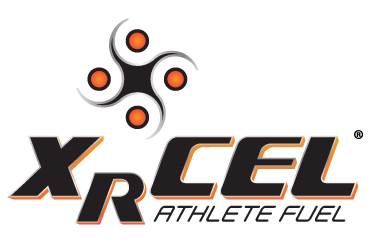
11 May Performance Nutrition Basics – Leg Three
Protein: Really the superstar?
Most Americans eat more protein than they need each day. Intake beyond the body’s needs is unnecessary & can possibly have negative effects. The big question is, what are the body’s needs? Obviously, each person’s protein needs are different, and those needs depend on many factors. Here are some guidelines:
Average adult (non-athlete): 0.8grams per kilogram body weight per day (about 55g/day for an average 150-pound person)
Endurance athlete (depends on training cycle): 0.8-2.0g/kg/day (55-135g/day for an average 150-pound athlete)
Other athlete with goal of building body mass: 1.4-1.8g/kg/day (127-163g/day for an average 200-pound athlete)
But here’s where the rubber meets the road: how do those numbers translate into actual food choices?
2 eggs–12g
4 ounces chicken breast–35g
4 ounces salmon–25g
1/2 cup black beans–8g
1/4 cup almonds–8g
various grains/veggies throughout the day (2 slices bread, 1 cup brown rice, 1 sweet potato)–13g
Total protein intake: 101g
This is, of course, more than what is necessary for average adults and even most athletes, except for endurance athletes during their pre-race cycle, and larger athletes looking to build mass. All that would be required to meet any higher recommendation would be slightly larger portions. The bottom line is, you can get all the protein your body needs to function properly, and satisfy the demands of athletic training and competition, from a healthy balanced diet. If, however you don’t have access to, or time to make, balanced meals, there are options for supplementation. At least now you will know how much protein you really need and can decide accordingly what to consume and when to consume it. Here are some of the healthiest sources of protein:
- Chicken, turkey, ham, fillet steak, or seafood cooked in a healthy manner (grilled, baked, broiled; not fried)
- Eggs
- Nuts and nut butters
- Beans or legumes
Protein does, of course, have important functions in the body:
- Maintenance & repair of body tissue (muscle, hair, skin, eyes, organs, etc.)
- Enzymes
- Hormones (insulin, secretin, etc.)
- Antibodies (read: immune system)
These functions are certainly important, but the functions of all the other nutrients (vitamins, minerals, carbohydrates, fat, water, fiber) should not be considered any less important. Getting more protein than what you need is not going to enhance or increase any of these functions/processes. Also, excess intake of protein can be stored as fat and, depending on the sources of protein, could lead to high intake of saturated fat (see “Performance Nutrition Basics, Leg Two; Demystifying Fats”).
Just remember, all of the nutrients are important; we just need different amounts of them. Finding a balance may be tough sometimes, but a little planning ahead can go a long way towards a healthy, balanced diet.
Janet Carter, MS, RD, LD, CPT, CLS
Dietitian/Sports Nutritionist
Endurance Athlete
dietjc24@yahoo.com
774-400-7566
Coming Soon: Performance Nutrition Basics, Leg Four; Vitamins, Minerals and Water
This blog is written using the most updated scientific information available. The author has no financial stake in anything that’s discussed, nor is she benefiting financially from writing the blog article. In other words, you are receiving un-biased, science-based sports nutrition information from an experienced professional who is also a seasoned endurance athlete.







No Comments